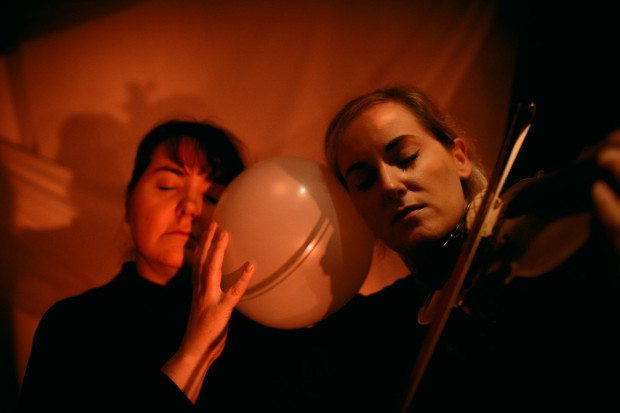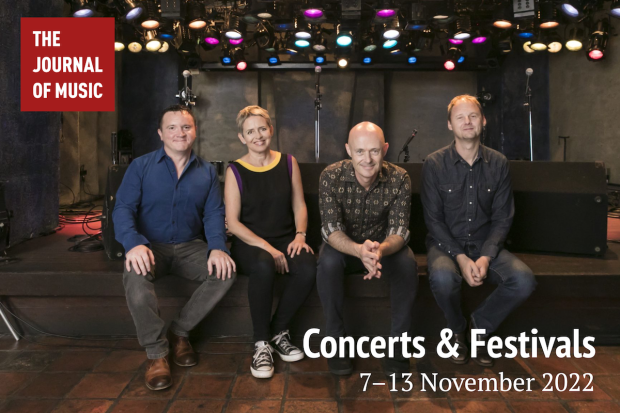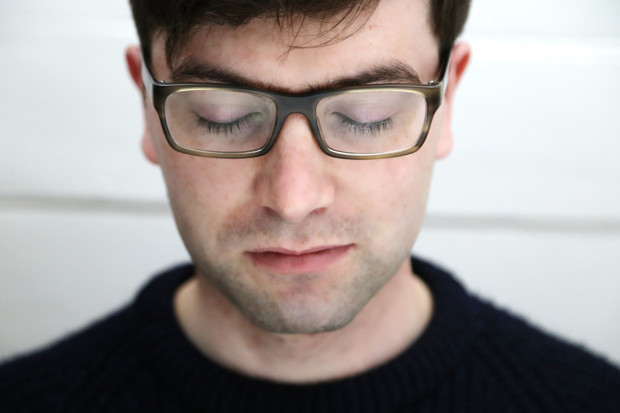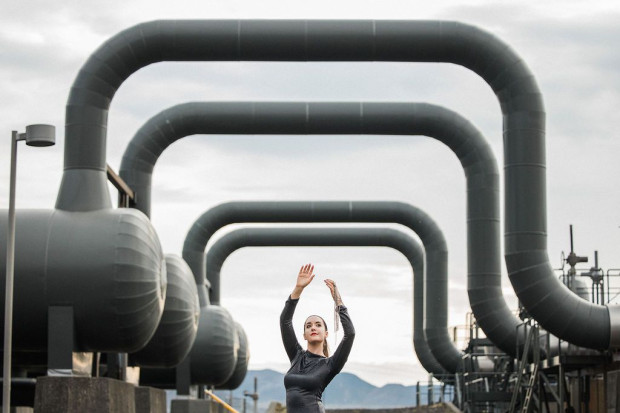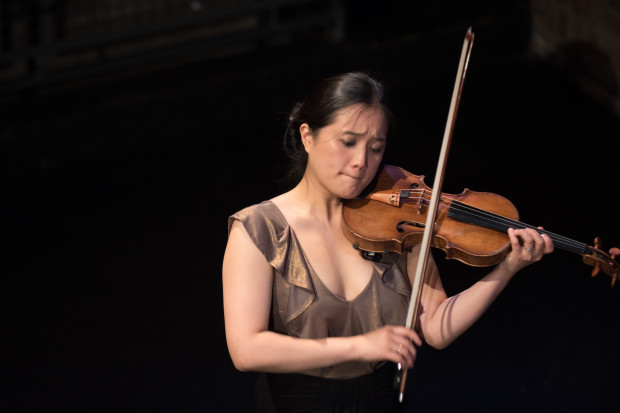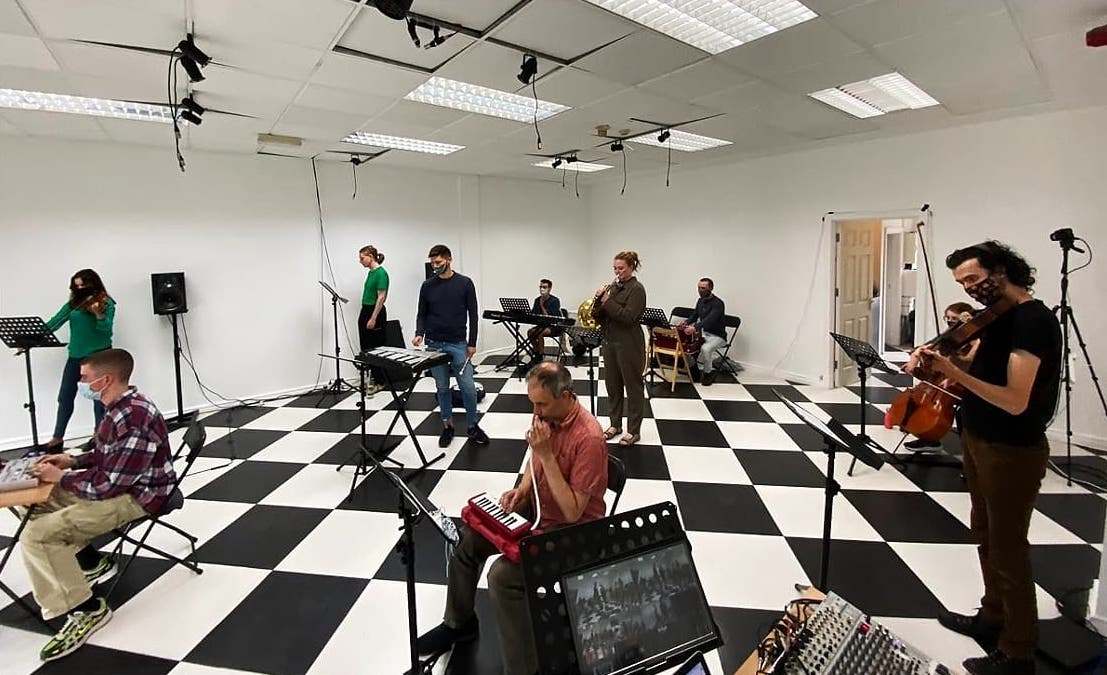
Kirkos performing at Unit 44 in Dublin (Photo: Kirkos)
Widening the Cracks in the Edifice of Neoliberalism
Recently, on the Contemporary Music Centre’s Amplify podcast, presenter Jonathan Grimes interviewed Stephen Graham, a musicologist specialising in underground music and currently Head of the School of Arts and Humanities at Goldsmiths, University of London. In an often interesting discussion on the relationship between contemporary music and the economy, he argues that new music groups like Kirkos (of which I am Artistic Director), and others in Ireland, are falling prey to ‘the experience economy’, sculpting experiences designed for consumers rather than listeners. The implication is that, motivated by a need to out-compete other demands on our audiences’ attention, we have resorted to a bland, quasi-corporate mode of creation. Obsessed with marketing ourselves as ‘innovative’ and with making the right noises on social media, we have supposedly neglected to create music supported by any kind of creative vision.
Speaking specifically about Kirkos, and quoting directly from the biography of the group on our website, he suggests that the ‘radically open approach to programming’ of our venue Unit 44 and our mission to ‘develop the ecosystem that thrives at the fringes of Irish new music’ are motivated by outside pressure to present music in a way that thrives in the neoliberal zeitgeist, an approach to music-making shaped by helpless participation in late-capitalism. Throughout the podcast, Graham relies exclusively on marketing materials, failing to reference or analyse a single performance.
The tone of discussion on the podcast suggests that our approach is some accident, that the composers and ensembles in Ireland are naïvely trying to make music, while leaving the political analysis for any academics who happen to pass by. In the case of Kirkos, this is untrue. The members of the group were teenagers in 2008, making us part of a generation whose reality as artists and people has been shaped by the collapse of the Celtic Tiger and the subsequent failure to rebuild a fairer society.
Open approach
The ‘radically open approach to programming’ we espouse is more than a buzzword: we invite artists to use our space for free and spend as little as we can get away with on production to stretch our funding as far as possible. Tickets are generally free (at the artist’s discretion), and we never turn anybody away for lack of funds. We take bookings from artists of any genre and any reputation, and we filter only by our own capacity, not based on our taste: in most cases, the final word on programming comes down to whether we can find and pay a person to open the space and mind the mixing desk. The main thing that limits our success – a factor we are working hard to overcome – is whether artists know about us and trust us.
When we call ourselves ‘DIY’, it’s not because we think that’s glamorous; it’s because the venue is a former hair salon and we have undertaken no treatment on the room since we took it over. Again, not because it was a trendy look, but because we operate on a budget that made a professional fit-out impossible. And we decided to open it not because we felt under pressure to be entrepreneurial, but because after seven years together as an ensemble there was still nowhere suitable in Dublin for us or our friends to play. This was partly because low-budget experimental music was completely shut out of the National Concert Hall by the closure of the old Kevin Barry Room and its renovation as an upmarket, curated space, an action that systematically excluded a generation (so far) of contemporary and experimental music practitioners from the main Irish classical music institution.
A political act
While Kirkos take part in a neoliberal society just like anybody else in Ireland does, Unit 44 is an explicit attempt to find ways to widen the cracks already present in the edifice of neoliberalism in this country. In the first instance, our existence as a loosely curated, free space is itself a political act, but it also creates a necessary space where artists whose voices may be more interesting and/or overlooked than our own can perform and host community events.
In this mission, we are one part of a milieu including many other artists and groups of various sizes and resources but with related manifestos and a generally cross-disciplinary focus, including Rebel Reads in Cork, A4 Sounds and Dublin Digital Radio in Dublin, the Praxis artists’ union, and the Ecliptic Newsletter. Additionally, there is a surge of energy still flying around in the wake of the 2021 closure of the underground cultural and political space Jigsaw (which itself replaced the anarchist social centre Seomra Spraoi), which is currently finding its way into new endeavours. My impression of the scene in Ireland right now is that solidarity, care and collectivity – anathema to neoliberalism – are among the strongest threads unifying the art that is happening here.
Graham’s point of reference bears little in common with my own experience of living as a musician and listener in Dublin over the past 15 years. The main text he cites in the podcast, the book Composing Capital: Classical Music in the Neoliberal Era (2019) by Marianna Ritchey, is written from an American perspective, and in discussing it, Graham seems to place Ireland in the US context of philanthropic arts funding, in contrast to the social democratic funding model of most of Europe. While Irish state funding for the arts is low compared to many European countries, we certainly do not have a strong culture of philanthropy here (or if we do, people have been trying to hide it from me…). In fact, much of the activity is from artists who have money to live on because of state initiatives like Arts Council bursaries or the current basic income trial, but little access to money for producing their work; hence the importance of ‘DIY’ venues.
Graham’s focus solely on contemporary classical music organisations also strikes me as out-of-date, and makes less sense in a city the size of Dublin than it might in Chicago or London. I see more commonality with colleagues in visual art, jazz, early music and non-academic electronic music genres than I do with contemporary music institutions. It is meaningless to me for Graham to list Kirkos, Crash Ensemble, the Contemporary Music Centre, Ergodos and stop there: that is not a remotely accurate representation of how the Irish contemporary music scene functions.
In the final part of the discussion, Graham posits a post-genre utopia where noise and other genres mix seamlessly with contemporary music, suggesting he is unaware that this is what’s already happening in places like Unit 44, where about fifty per cent of the musicians using the space do not come from a classical music background. Perhaps Graham has paid closer attention to the design language of the Kirkos website than he has to the actions of those currently making music in Ireland?
Visit www.kirkosensemble.com
Published on 18 July 2023
Sebastian Adams is a composer, viola player and Artistic Director of Kirkos Ensemble.










